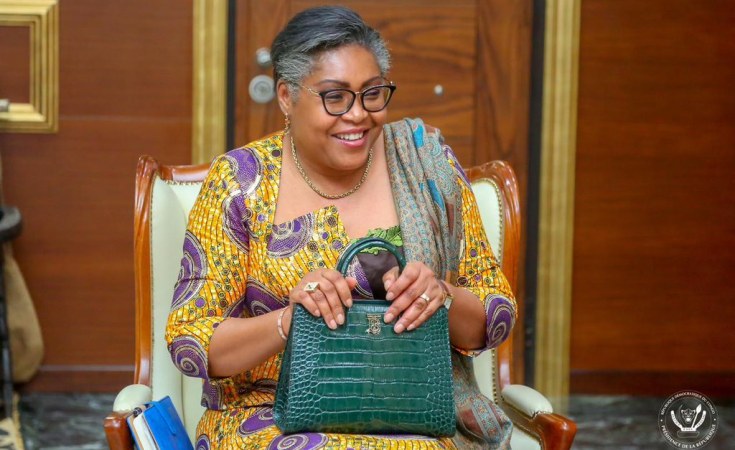The Democratic Republic of Congo held a session to swear in its new Prime Minister Judith Suminwa Tuluka and her government on Tuesday, ending more than six months of deadlock following President Felix Tshisekedi's re-election.
The DRC's planning minister Judith Suminwa Tuluka was appointed as the country's first woman Prime Minister at the beginning of April.
An economist, she takes over from Jean-Michel Sama Lukonde, following President Felix Tshisekedi's re-election on 20 December where he garnered more than 70 percent of votes. The results were disputed by the opposition.
Parties supporting Tshisekedi garnered more than 90 percent of the seats in parliament, allowing him to legislate with ease.
Referring to the delay forming a government, the President's communications director Erik Nyindu said it took time for the different parties in the ruling coalition to find a compromise.
Suminwa will be now tasked with pushing the President's declared priorities of employment, youth, women and national cohesion for the nation of about 100 million people.
Fairer society
"Our ambition is to build a more united and more secure state in the heart of Africa with a more diversified and competitive economy and achieve a fairer society for sustainable development," Suminwa said when she put forth her programme to lawmakers on 8 June.
The estimated cost of the Government Action Program for the period 2024-2028 stands at $92 billion (€85 billion), or an average annual cost of $18 billion (€17 billion).
The plan includes creating 1.5 million jobs per year between 2024 and 2030 - representing around 30 percent of the state budget.
20 percent is to go towards security and rehabiliating the army, while a further 22 percent is earmarked for logistical development such as building deep-water ports, roads and improving airports.
"Among our priorities, there is in particular the need to create more jobs, the need to improve the purchasing power of the Congolese population, by consolidating the achievements of the past mandate, to have more infrastructure in terms of of land routes, waterways and airways and railways. There is also a need to improve issues related to capacity building and more justice," Suminwa told lawmakers.
The project must now be adopted by national deputies.
Overly ambitious
For their part, civil society organisations have pointed out that the government's plan is overly ambitious and insist on the need to fight corruption as well as other challenges linked to good governance.
Valery Madianga, the coordinator of the NGO Centre for Research in Public Finance and Local Development (CREFDL) says the country's current budget is only about half of what the new Prime Minister is projecting.
"The risk is that we will make public opinion accept overestimated ambitions and in reality, we would not be able to achieve them," he told RFI correspondent Pascal Mulegwa.
"For the moment, we believe that we must assign specific missions to each minister and evaluate them in the short, medium and long terms. We must respect public spending channels and also respect the monetary stability pact to avoid budget overruns and wastage of funds because that is the real problem".
The new cabinet comprises 54 ministers versus 57 in the last government - a smaller-than-expected downsizing despite pressure to reduce costs.
Vital Kamerhe, the former Economy Minister has been chosen as head of the country's National Assembly.
Thérèse Kayikwamba Wagner will head up Foreign Affairs, Jacquemain Shabani is Interior Minister and Doudou Fwamba Likunde head of Finances.
Eve Bazaïba remains Minister for the Environment and Patrick Muyaya as head of Communications.
Consolidate progress
Tshisekedi became president in 2019 promising to improve living conditions in DRC - which boasts mineral riches but has a largely impoverished population.
According to the World Bank, with three-quarters of the population living on less than $2.15 (€2) a day in 2023.
The United Nations says some seven million people have been internally displaced by 25 years of bloodshed in the east, a conflict that Tshisekedi has also promised to tackle.
But the security situation has worsened in North Kivu province where a Rwanda-backed rebel group M23 has seized swathes of territory over the last two years.
Although he failed to keep these promises, Tshisekedi campaigned for a second term on his achievements such as free primary medication, asking for another mandate to "consolidate" the progress.
(with newswires)


